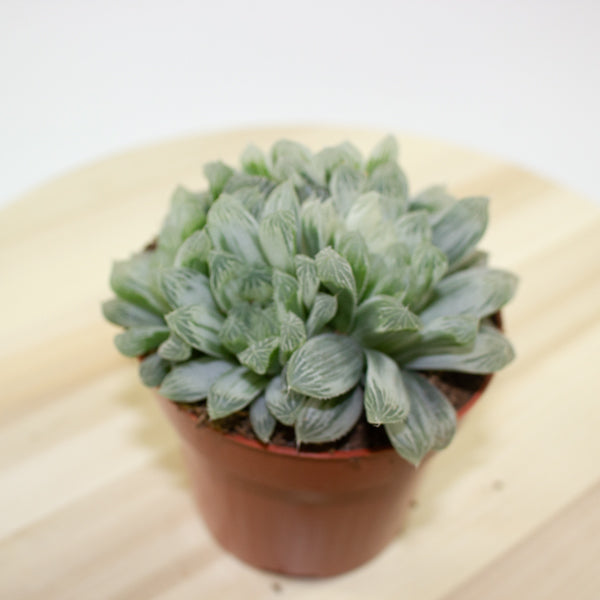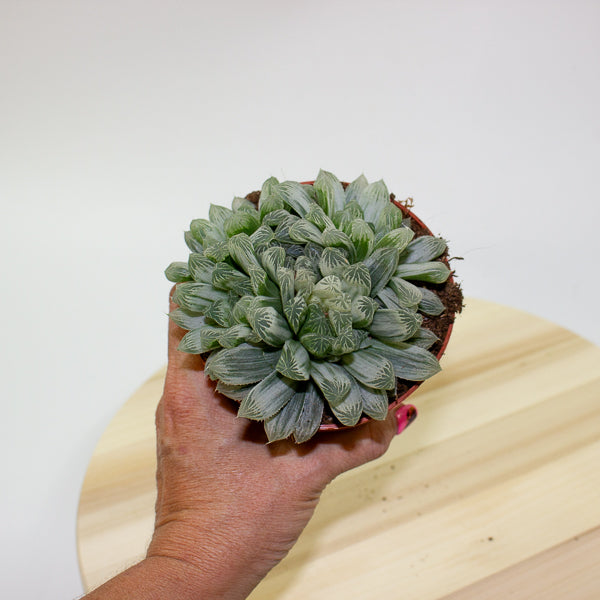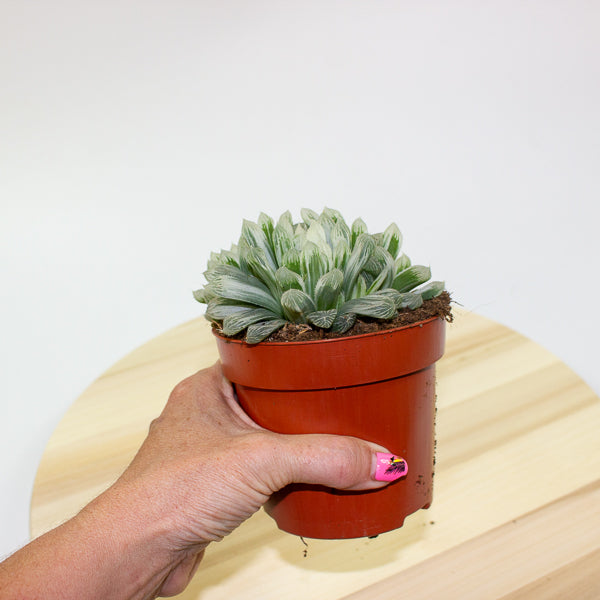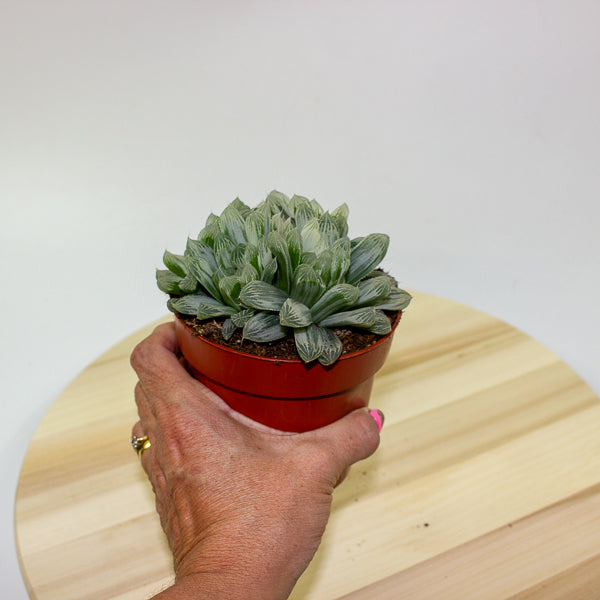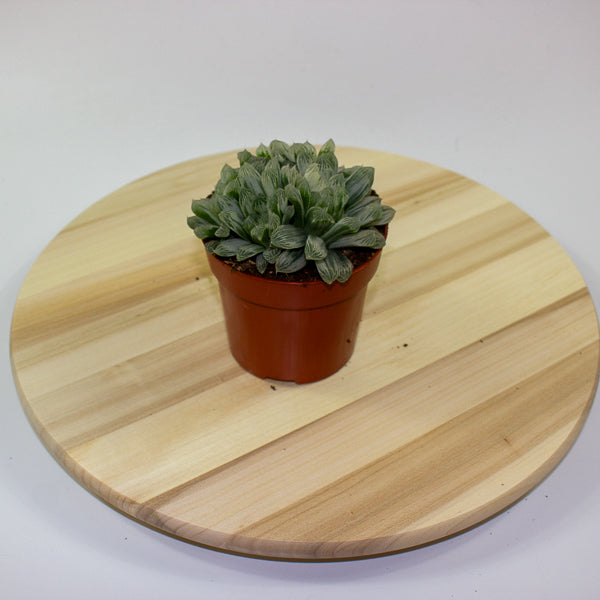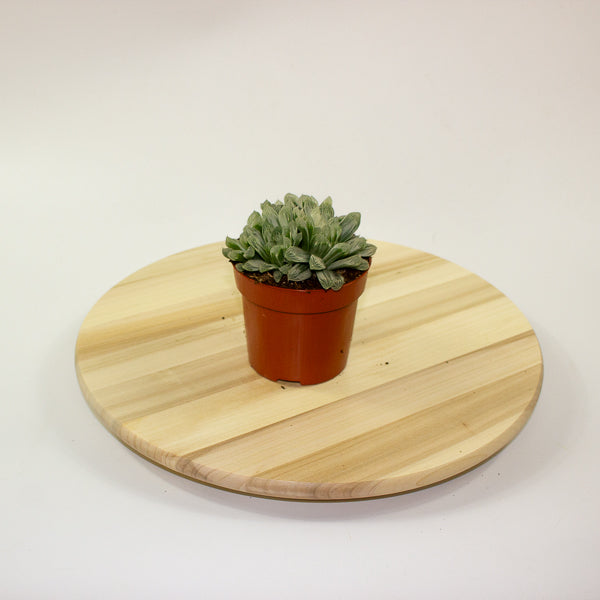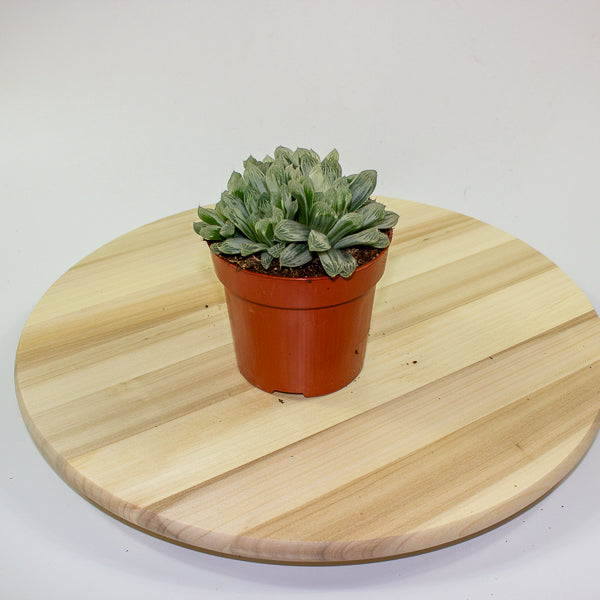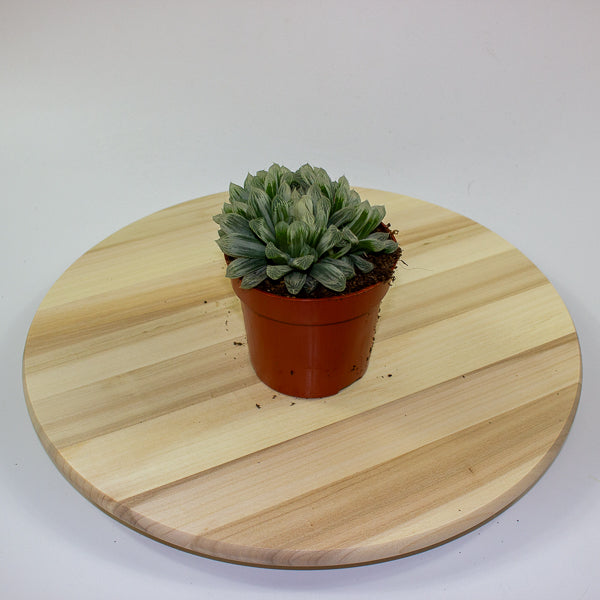1
/
of
8
Emm's Plant House
Haworthia cooperi pilifera Silver Swirl 10.5cm H11cm
Haworthia cooperi pilifera Silver Swirl 10.5cm H11cm
Regular price
£18.00 GBP
Regular price
Sale price
£18.00 GBP
Unit price
/
per
Taxes included.
Couldn't load pickup availability
Haworthia cooperi pilifera 'Silver Swirl' is a striking and highly sought-after succulent variety known for its unique, translucent, and fleshy leaves that form a spiral rosette. The leaves have a beautiful silver to pale green coloration, giving it a distinctive, almost iridescent appearance, which is why it is often referred to as the 'Silver Swirl.' This slow-growing, low-maintenance plant is native to South Africa and is ideal for succulent collectors or anyone looking to add a touch of elegance to their indoor plant collection.
- Full Botanical Name: Haworthia cooperi pilifera 'Silver Swirl'
- Common Names: Silver Swirl Haworthia
- Country and/or Region of Origin: Native to South Africa
- Growing Conditions in Native Habitat: Grows in rocky, arid environments in southern Africa, where it thrives in well-draining, dry soil and moderate temperatures.
Care Guide
Care Guide
Share
